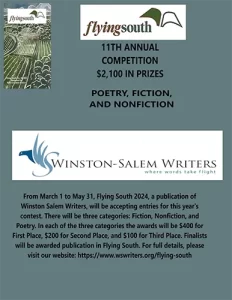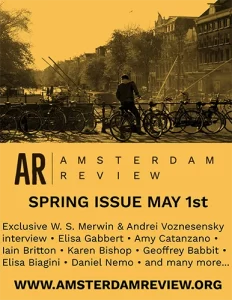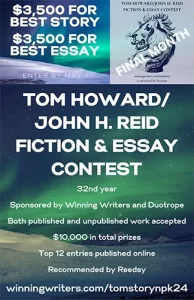Hunger Mountain – Spring 2006
Number 8
Spring 2006
Biannual
Sima Rabinowitz
Ruth Stone Prize in Poetry judge Nancy Eimers, prose guest editor Victoria Redel, and poetry guest editor Roger Weingarten have selected strong, original work for this very satisfying issue. Poet and novelist Redel offers a short and fabulously poetic introduction to the “rigorous fictions” she has chosen in which she praises “the surprise and heart-stopping happiness of a sentence.” I don’t know if it is by coincidence or design that she has selected several pieces by excellent poets who, like herself, are also successful prose writers, including work by Sheila Kohler, Terese Svoboda, and Richard Katrovas.
Ruth Stone Prize in Poetry judge Nancy Eimers, prose guest editor Victoria Redel, and poetry guest editor Roger Weingarten have selected strong, original work for this very satisfying issue. Poet and novelist Redel offers a short and fabulously poetic introduction to the “rigorous fictions” she has chosen in which she praises “the surprise and heart-stopping happiness of a sentence.” I don’t know if it is by coincidence or design that she has selected several pieces by excellent poets who, like herself, are also successful prose writers, including work by Sheila Kohler, Terese Svoboda, and Richard Katrovas. One of my favorite works of prose in the magazine is Stephen Tuttle’s “The Tree of the Holy Virgin: A Primer,” an inventive abecedary about working with cognitively disabled children, classified in the Table of Contents as creative nonfiction, though it might easily be sudden fiction. Roger Weingarten has chosen to feature “reincarnated forms.” Bruce Weigl describes Weingarten’s interests in his introduction (“to see how free verse poets both used and worked against the traditional, the subliminal, the unexpected”) and lists the forms included: appropriated forms, a canzone, concrete poetry, a crown of sonnets, a diptych, an elegy, interior acrostics, prose poems, and a “quazal” or pseudo ghazal. There is much fine work in this section, but for my taste the most memorable poem in the issue is the Ruth Stone Prize winner, Joshua Poteat’s “From J.G. Heck’s 1851 Pictorial Archive of Nature and Science.” Poteat draws striking verbal illustrations of seven visual illustrations from the natural sciences, rendered in precise, lyrical, and authentic detail. William Walsh contributes an in-depth e-mail interview with poet Jack Myers and stunning water color portraits by Kira Curis round out the volume.
[www.hungermtn.org]




